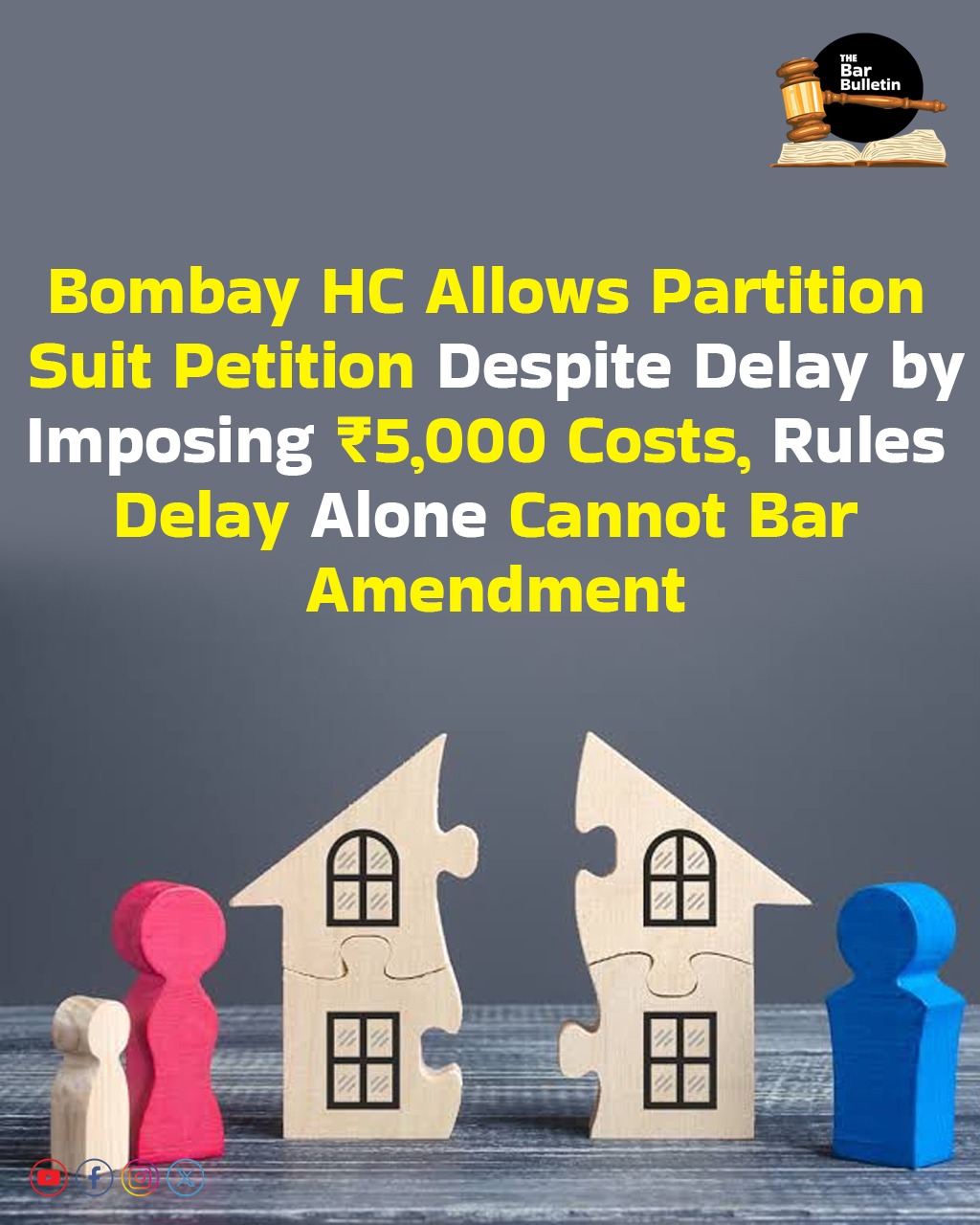The Bombay High Court (Aurangabad Bench) on September 8, 2025, before Justice Arun R. Pedneker, allowed a writ petition under Article 226 challenging a trial court order that had refused to permit amendments in a partition suit.
The case arose after the petitioner filed a regular civil suit seeking partition and separate possession of a double-storied residential house in Nanded, claiming one-third share. The property had been purchased by the parties’ father in 1954 and, after his death in 1983, was recorded in the names of his heirs, including their late mother. The petitioner later discovered that defendant no. 1 had changed the records in his own name on the basis of a Will Deed said to have been executed in 1994, and had also purchased defendant no. 2’s share through a sale deed in 2011.
The petitioner contended that the sale was invalid under the alleged forged Will.. He sought to amend the plaint to change his share from one-third to one-fourth, to add his deceased sister’s son as a party. The trial court, by order dated February 25, 2025, rejected the application, holding that the petitioner already knew about the Will when he filed the suit, that the request was delayed after the trial had begun, and that the sister’s son had no right in the property. The trial court further observed that the deceased sister would have no share in the joint family property, and on that basis also refused the prayer to add her son as a party to the suit.
Hearing the writ petition, the High Court found that the amendments went to the core of the partition dispute, that in such suits all heirs must be made parties, and that deciding the validity of the Will and sale deed was central to the case. The Court stressed that delay alone is not a reason to refuse amendments when they are needed to fully settle the matter and to prevent multiple litigations. It also held that the trial court was wrong in concluding that the deceased sister had no share, since her son was entitled to represent her interest in the partition.The petition was therefore allowed, the trial court’s order was set aside, and the petitioner was given four weeks to amend the plaint on payment of ₹5,000 as costs to the defendants.
Appearances:
For the Petitioner- Adv. Mr.S.S.Bora
For the Respondents- Adv. Mr.S.S.Gangakhedkar for R1A and R1B

